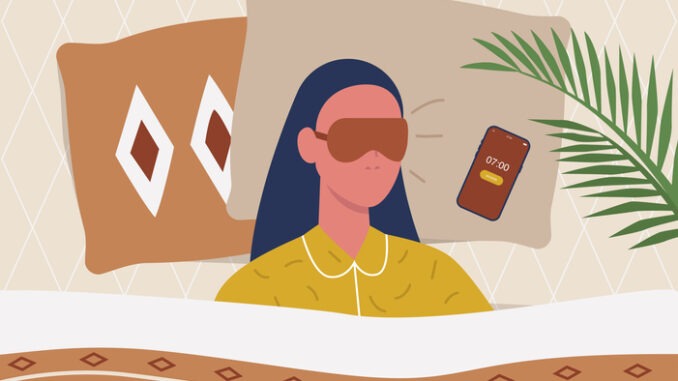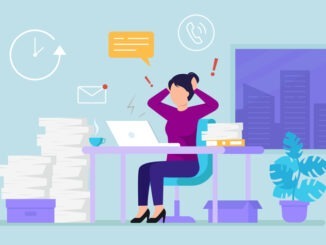
We all need sleep to recover from the day – here are some ideas on how to improve your sleep routine
CREDIT: This is an edited version of an article that originally appeared on Mental Health Foundation
Sleep and mental health are closely related; living with a mental health condition can affect your sleep, and poor sleep can affect your mental health.
We all have nights when it’s hard to fall asleep or we wake up several times. Most sleep problems sort themselves out within a month or so, but longer stretches of bad sleep can seriously affect our lives. Self-help techniques can get you back to a more normal sleeping pattern but prolonged sleep problems can be symptoms of other conditions, such as depression or thyroid problems, so speak to your GP if they continue.
Sleep problems you may experience
Insomnia
Insomnia is the most common sleep disorder, affecting around one-in-five people. You may have insomnia if you find it hard to get to sleep, wake up several times during the night, or wake up too early. During the day you may feel sleepy, anxious, irritable and unable to concentrate or remember things.
Narcolepsy
Narcolepsy can cause you to suddenly fall asleep at inappropriate times; it’s caused by the brain being unable to regulate your sleeping and waking patterns. If you have narcolepsy you may feel very drowsy throughout the day and fall asleep suddenly and without warning – for example, while at work, talking or driving. There is no cure, but the symptoms can be controlled by medication and by lifestyle adjustments such as changing your sleeping routine, improving your diet and exercising.
Sleep apnoea
Sleep apnoea is when your breathing stops and starts when you sleep, constantly interrupting your rest. If you have sleep apnoea you will often snore loudly, or make gasping or choking noises while you sleep. During the day, you will feel very tired, find it hard to concentrate, have mood swings, and have a headache on waking.
Losing weight and sleeping on your side can help with mild sleep apnoea. You can also be prescribed special devices to help keep your airway open during sleep.
What causes sleep problems?
- Stress or worry.
- A change in the noise level or temperature of your bedroom.
- A different routine – for example, because of jet lag.
- Too much caffeine or alcohol.
- Shift work.
- Physical or mental health problems.
- Side-effects of medicines.
Ways to improve your sleep
- Establish a regular, relaxing bedtime routine that lets you unwind and sends a signal to your brain that it’s time to sleep.
- Create a restful environment; bedrooms that are dark, cool and quiet are generally easier to fall asleep, and stay asleep, in.
- Try to go to sleep and wake up at the same times each day.
- Exercise regularly, but avoid vigorous exercise near bedtime if it affects your sleep.
- Avoid caffeine and alcohol before bed; they can stop you from falling asleep and prevent deep sleep.
- Only use your bed for sleep or sex. Unlike most physical activity, sex makes us sleepy.
- Try apps and online programmes designed to help with sleep problems, such as Pzizz, Sleepio or Sleepstation.
- Avoid using screens in the evening, including on smartphones and tablets. The light from the screen can have a negative effect on sleep, and social media, news and games can all stimulate your brain and make you feel anxious.
- Write down your worries if you lie awake worrying about tomorrow; this can help put your mind at rest.
- If you can’t sleep, don’t worry about it. Get up and do something relaxing like listening to music, or reading, until you feel sleepy.


Be the first to comment